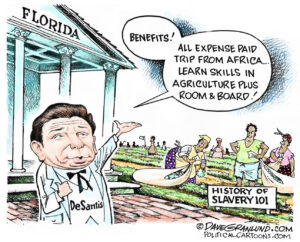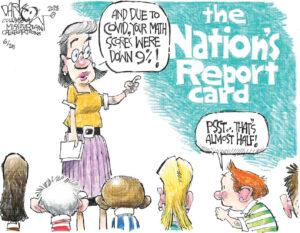A British Perspective: How U.S. Universities Became Hedge Funds
A U.K. journal offers a great primer on why our public universities—especially California's—are in such a dismal state these day.
A U.K. journal offers a great primer on why our public universities—especially California’s—are in such a dismal state these day. –YL
Your support matters…Renewal:
In August 2009, just one month after the state of California cut over a billion dollars from its higher education budget, the University of California (UC) lent the state $200 million (Asimov, 2009). When journalists asked the UC president, Mark Yudof, how the university could lend millions of dollars to the state while the school was raising student tuition fees 32 per cent, furloughing employees, cancelling classes, and laying off teachers, Yudof responded that when the university lends money to the state, it turns a profit, but when it spends money on salaries for teachers, the money is lost.
Welcome to the university as hedge fund. In this strange new world, institutions of higher learning care more about interest rates than educational quality. In fact, Harvard cared so much about reducing the cost of borrowing money that it made several expensive credit default swaps, which resulted in the loss of hundreds of millions of dollars and the halting of an ambitious expansion plan (Groll, 2010). Not only did Harvard gamble on interest rates to support future construction plans, but it moved much of its endowment into high risk investments, and the result is that the world’s wealthiest education institution is now claiming poverty. …
To understand how both public and private research universities have gotten themselves into this mess, one needs to understand five inter-related factors: the state de-funding of public education; the emphasis on research over instruction; the move to high-risk investments; the development of a free market academic labour system; and the marketing of college admissions. These different forces have combined to turn American universities into corporations centred on pleasing bond raters in order to get lower interest rates so that they can borrow more money to fund their unending expansion and escalating expenses. Read more
Independent journalism is under threat and overshadowed by heavily funded mainstream media.
You can help level the playing field. Become a member.
Your tax-deductible contribution keeps us digging beneath the headlines to give you thought-provoking, investigative reporting and analysis that unearths what's really happening- without compromise.
Give today to support our courageous, independent journalists.






You need to be a supporter to comment.
There are currently no responses to this article.
Be the first to respond.